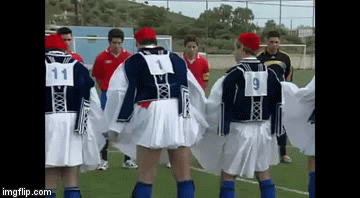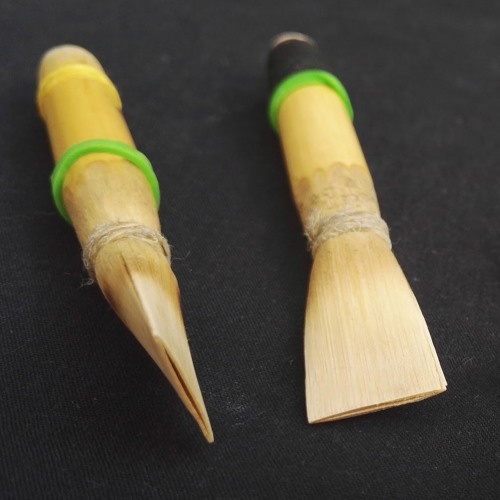Fan fiction in your head with zero proof other than fan-fiction blog sites.
Rembetiko is a musical style that was popularised in Piraeus where a vast majority of Anatolian settlers were moved in. It was their ghetto music. Nothing to do with Balkan 'klephts'.
Of course, you can provide 1 (one) klephtiko song that proves such continuity with the Rembetiko, but you can't because there isn't it any.
Typical 'mainland' mentality, to steal Anatolian culture and proclaim it as their own since they are ashamed of their own Albanophone and Slavophone music/ethnography.
Most of these articles take their informations from "Rebetologist" works such as that of Petropoulos.
I don't have to steal anything from literal cousin peoples ,basically modern Greece borders+Eastern Thrace(especially in/around Poli)+Aegean Turkey at the time were the same people since the later were post-Ottoman migrants from the former.In this case "Anatolian" is nothing but a geographical designation for a group of people that was the equivalent of a modern diaspora(even more so in the big cities where the flow of people would be constant).It's like you are telling me I'm trying to steal something called "Australian" from Melbourne Greeks.I guess everyone brought something?it wasn't the "Anatolian" spirit/ghost?How did kantades end up in Smyrna?
What was "popularized" back then was the term "Rembetiko" by record labels who "imposed" it ,those who contributed to it didn't even call it that ,they had "Xasapika" "Zeibekika" "Magkika" etc or "laiko",then came the Smyrneika.
There's no records from 19th century ,you can search about "mourmourika" though(some "Rembetika" songs are of such origin) and where and when they evolved ,("gialadika"too) and search what kind of people were present in the place that it evolved.Ask also the musicologists why they say it evolved from Dimotika ,I'm not one.The "mangika" subgenre you could say is the urban equivalent of Klephtika ("odes" to the brave ,can only come from certain types of societies/groups with certain "codes" ,certainly not from Smyrna) ,it becomes more obvious if you look at the origin of the word(
https://el.wikipedia.org/wiki/Μάγκα_(στρατός) )and search with who ,when and how the semantic change occured.
In Piraeus there was a merging of styles and the local one(pre-refugee) along with its music ,dance ,culture and slang dominated.At first before the merge there were certain synoikies where you would listen the one or the other.How would the guys who left riches(the story goes) contribute to such culture either way?such subculture can only arise from the backward balkaner "bandits" as some call them...In fact you can use that exact word and search "μπαντιδες ιωαννινων" ,you will notice the third website (which is the last place you would expect ethnocentrism/regionalisms) and see some interesting stuff.
What and who were the "dervishides"?what "nationality"?what their relations with 21' revolutionaries?and their "tekes"?who were the "vlamides"?who used to hold "koumboures"?etc
Other interesting stuff
https://rembetiko.gr/t/κώστας-βλησίδης-τα-«βλάμικα»-και-«ρεμπέτικα»-τραγούδια-της-λογιοσύνης/38304
I could go on but my folders are messy...I'm not gonna bother further,you are the researcher after all.Search "rebetologists" ,musicologists,the slang/culture ,look for more threads from the above forum..the devil lies in the details.At the end of the day it's like with genetics ,there's a mix ,there's divergence ,"mutations" ,repeat..to the point that it becomes meaningless to search for some single pure origin.You are the one who is desperate to appropriate things by hiding behind something called "Anatolian" while your "Anatolian" side was and remained diverged in every aspect and was far away from the any of these processes.I'd call the Albanophone/Slavophone stuff projection too.
+ 1)Just because something has "oriental" elements ,it doesn't mean it evolved in Anatolia ,a look at an Ottoman-empire map is enough 2)don't confuse urban with rural 3)Have in mind that most modern regional musics(aka mostly rural) do not represent/sound like their ancestral ones of centuries ago + many instruments are relatively recent adoptions + different instruments doesn't mean different music.All are variations of mostly "Byzantine" stuff but well..identity crisis and the need to feel special creates issues for some.
Random Turkish traditional from Anatolia:
And Turkish Zeybeks who gave their namesake to the Zeybekiko dance that mainland copers claim as 'klepth'.
I didn't say Zeibekiko comes from Klephts ,I said from Syran migrants who were among the first to settle Piraeus before refugees, point being it wasn't brought by the later Smyrneans.(When I said "all" I meant all urban hotspots of proto-"rembetika"-laika elements).Other than that ,both the origin of the tribe(one theory is that they were not even a tribe but a battalion including Yenicars) and the dance are unknown PLUS again according to "experts" Greek to Turkish one are different sharing only the name and the inspiration from the later(basically just the spreaded arms part).



